Products
Products
Fluorescence and UV–vis system
Horiba's Dual-FL system reportedly combines a CCD-based benchtop fluorometer with a built-in UV–vis spectrophotometer. According to the company, the instrument provides spectral rates as fast as 80,000 nm/s and a signal-to-noise ratio of greater than 20,000:1 RMS. Horiba Scientific, Edison, NJ;
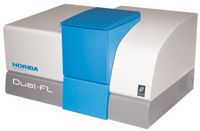
IMS analyzer
An ion mobility spectrometry (IMS) analyzer from Photonis is designed for simple integration with most mass spectrometers. According to the company, the compact system can be scaled or customized to interface with a variety of instruments to provide simple IMS analysis that can be performed at room temperature. Photonis, Sturbridge, MA;
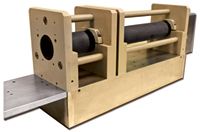
Microwave digestion
Milestone's UltraWAVE microwave digestion system uses the company's single reaction chamber technology for use in metals digestions. According to the company, the system uses a single pressurized vessel for all samples, allowing for simultaneous digestion of up to 22 samples. The system reportedly can accommodate a maximum temperature of 300 °C and pressure of 199 bar. Milestone, Inc., Shelton, CT;
www.milestonesci.com/ultrawave.
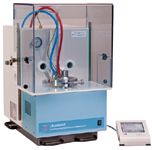
ICP-MS system
Thermo Fisher Scientific's iCAP Q ICP-MS system is designed to provide increased throughput to enable laboratories to cut analysis times by up to 50%. According to the company, the system features an interface that enables one-click setup and allows users to go from standby to performance-qualified analysis with the push of a button. Thermo Fisher Scientific, Inc., San Jose, CA;
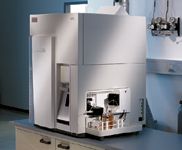
Analysis of sulfur in gypsum
An application note from Rigaku describes the use of the company's NEX QC energy dispersive X-ray fluorescence spectrometer in the monitoring of gypsum for quality control during the cement production process. According to the publication, other elements in the gypsum, including calcium, can also be measured. Applied Rigaku Technologies, Austin, TX;
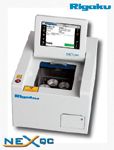
USP 232 standards
SPEX CertiPrep's consumer safety compliance standards now include USP 232 elemental impurities standards. According to the company, the standards can be used as a calibration or check standard to verify oral daily dose PDE, parenteral component limit, or parenteral daily dose PDE. SPEX CertiPrep, Metuchen, NJ;

Silicon drift detector
EDAX's thermoelectrically cooled 50-mm2 silicon drift detector is designed for use in its Orbis micro-XRF elemental analyzer system for high-resolution spectral acquisition. According to the company, the system can be useful for those who make measurements on small fragments, coatings and deposits on thin substrates (such as ink on paper). biological samples, and trace element analysis using heavy filters to improve sensitivity. EDAX, Mahwah, NJ;
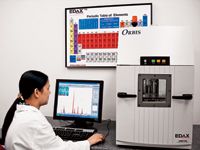
UV polarizers
Moxtek's UV wire-grid polarizers are designed for use at wavelengths as low as 250 nm with high transmission, extinction, and angular aperture. According to the company, the product's materials are metal and glass, making it suitable for harsh environments and demanding applications. Moxtek, Orem, UT;
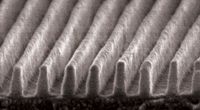
ICP-MS system
The Agilent 8800 triple-quadrupole ICP-MS system is designed to provide improved performance compared with single-quadrupole ICP-MS and to provide MS-MS operation for interference removal in reaction mode. According to the company, the system can be used to analyze elements in life-science, soil, rock, and plant materials. The system reportedly also can be set up to operate like a single-quadrupole ICP-MS system. Agilent Technologies, Santa Clara, CA;
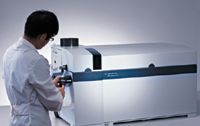
Long-path gas cells
PIKE's long-path IR gas cells are designed for analysis of air contaminants, pure gases, and gas mixtures. According to the company, the fixed-path cells range from 2.4 m to 20 m, and the variable model can be adjusted from 1 m to 16 m. All of the cells reportedly mount rigidly to the baseplate of an FT-IR spectrometer. PIKE Technologies, Madison, WI;
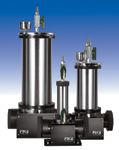
Microvolume UV spectrophotometer
Shimadzu's BioSpec-nano spectrophotometer is designed for fast, reproducible concentration determination of nucleic acids and proteins. The instrument reportedly requires a sample volume of 1 μL (0.2-mm pathlength) or 2 μL (0.7-mm pathlength), which is pipetted onto its measurement plate. No standard rectangular cell is needed, although a rectangular cell adapter is available. According to the company, sample mounting, measurement, and cleaning are performed automatically by the instrument, and measurement time is 3 s. Shimadzu Scientific Instruments, Columbia, MD;
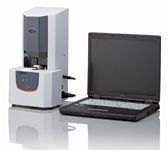
FT-IR microscope
The Lumos stand-alone FT-IR microscope from Bruker Optics is designed for visible inspection and infrared spectral analysis. According to the company, all internal moveable components are motorized and the instrument's software guides operate stepwise through the process of data acquisition. Bruker Optics, Billerica, MA;
www.brukeroptics.com/lumos.html
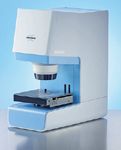
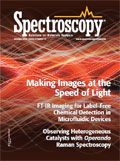
Best of the Week: AI and IoT for Pollution Monitoring, High Speed Laser MS
April 25th 2025Top articles published this week include a preview of our upcoming content series for National Space Day, a news story about air quality monitoring, and an announcement from Metrohm about their new Midwest office.
LIBS Illuminates the Hidden Health Risks of Indoor Welding and Soldering
April 23rd 2025A new dual-spectroscopy approach reveals real-time pollution threats in indoor workspaces. Chinese researchers have pioneered the use of laser-induced breakdown spectroscopy (LIBS) and aerosol mass spectrometry to uncover and monitor harmful heavy metal and dust emissions from soldering and welding in real-time. These complementary tools offer a fast, accurate means to evaluate air quality threats in industrial and indoor environments—where people spend most of their time.